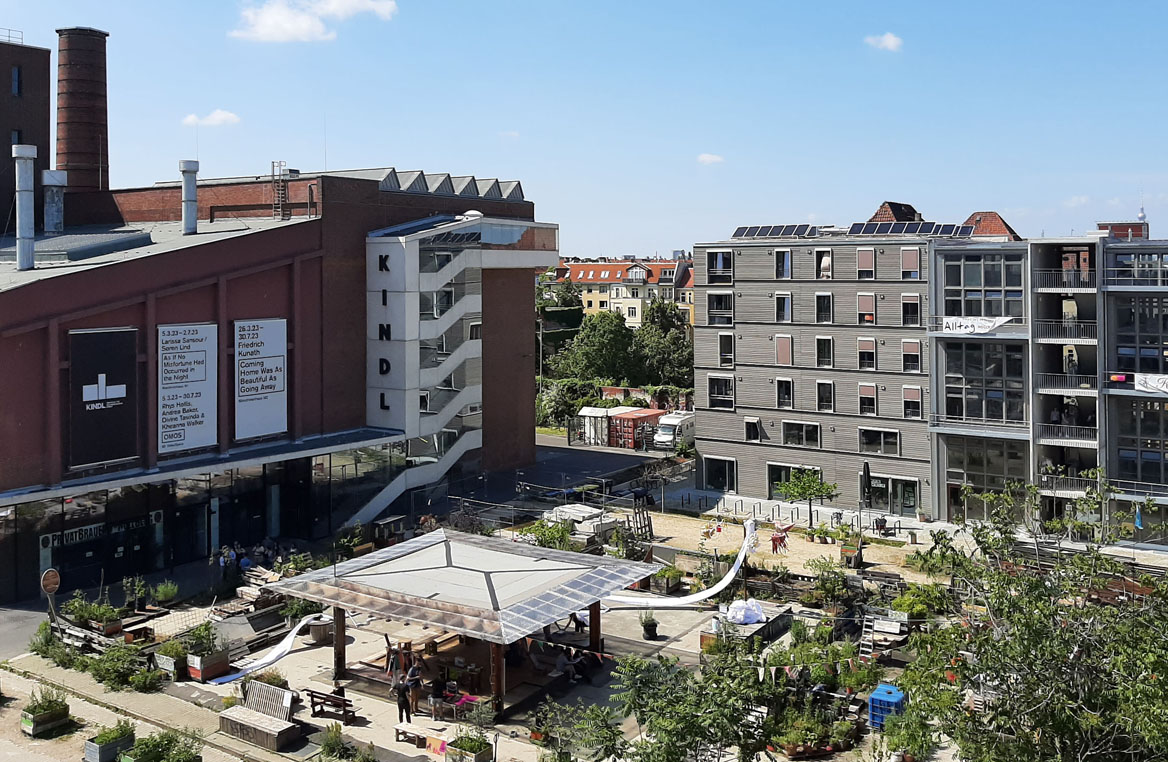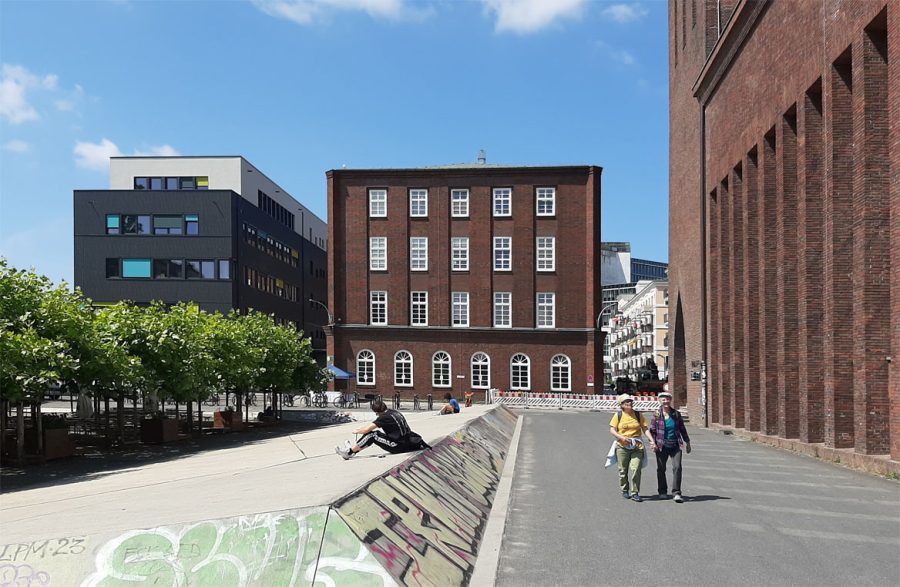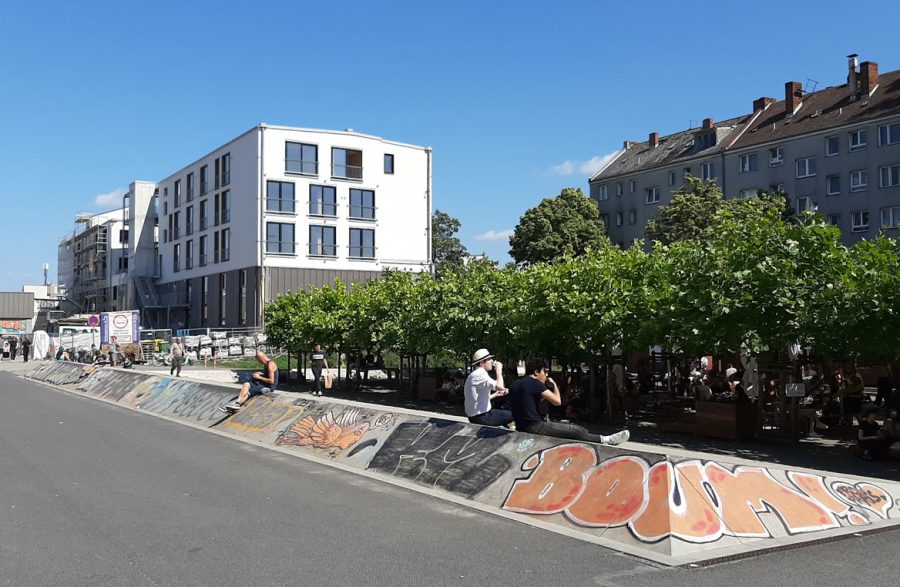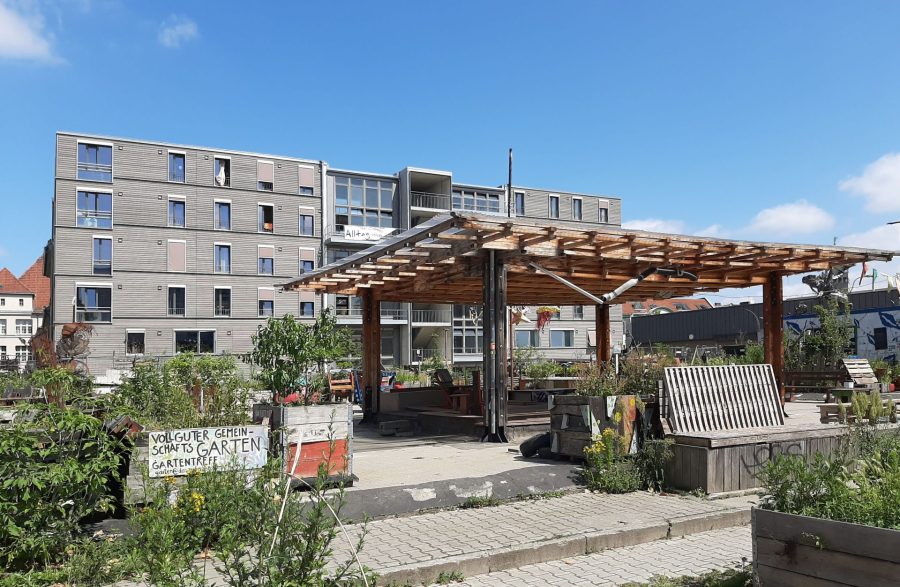Circular transformation: sustainable urban development in Berlin Neukölln

2004 in Berlin Neukölln: there is a sour smell of barley and hops on the site of the Berliner Kindl brewery, lorries pass through the large gate – industry in the middle of a residential area. A plane approaches the nearby Tempelhof airport, the noise of the aircraft roars through the thin windows of the old buildings.
Today, twenty years later, a far-reaching transformation has taken place: the airport has been decommissioned and turned into an inner-city open space for sport and culture. The Kindl brewery has moved to the edge of the city and the Rollberg area in Berlin Neukölln is now home to a centre for art, a circular building, spaces for culture, innovative ideas and cooperative flats. An unusual urban development project is taking shape!
The site of the former brewery was divided up in 2015 and sold to two new owners: The representative main building from the 1920s passed into private ownership – with the condition to make the building accessible as a cultural venue. The result is the KINDL – Centre for Contemporary Art bringing artistic positions to Neukölln.

Global Village house in Berlin Neukölln. Photo by: ©Kora Johanns
The larger part of the former brewery site with the former warehouse was acquired by the Swiss Edith Maryon Foundation. The institution aims to counteract the prevailing capital-driven utilisation of land and to rule out land speculation. The development of the site is in the hands of the co-operative TRNSFRM e.G. with the aim of securing the former industrial area for social, creative and ecological uses.
Various elements of the new urban site have already been realized, such as the Global Village House, where Berlin associations and NGOs with a migrant background have found a home, and the new building project ‘Alltag’, a temporary home for people in special circumstances. With the CRCLR House, a centre for working, living and community-oriented coexistence has been added. The conversion and extension of the former barrel loading hall is a model project for circular construction and was built according to the cradle-to-cradle principle.

CRCLR-House in Berlin Neukölln. Photo by: ©Kora Johanns
The new building for the national headquarters of BUND – the German Federation for the Environment and Nature Conservation – is still right at the start and will be a sustainable timber-hybrid construction. Meanwhile the transformation of the former Vollgut warehouse is in full swing: multi-storey, metre-high basements, which are being upgraded in terms of infrastructure and technology and will provide space for Berlin’s cultural scene. The transformation of the site is far from complete. Be a witness to the process and explore Berlin Neukölln on a professional guided tour!

Vollgut community garden in Berlin Neukölln. Photo by: ©Kora Johanns
Text by: Kora Johanns, Ticket B – Architektur erleben





